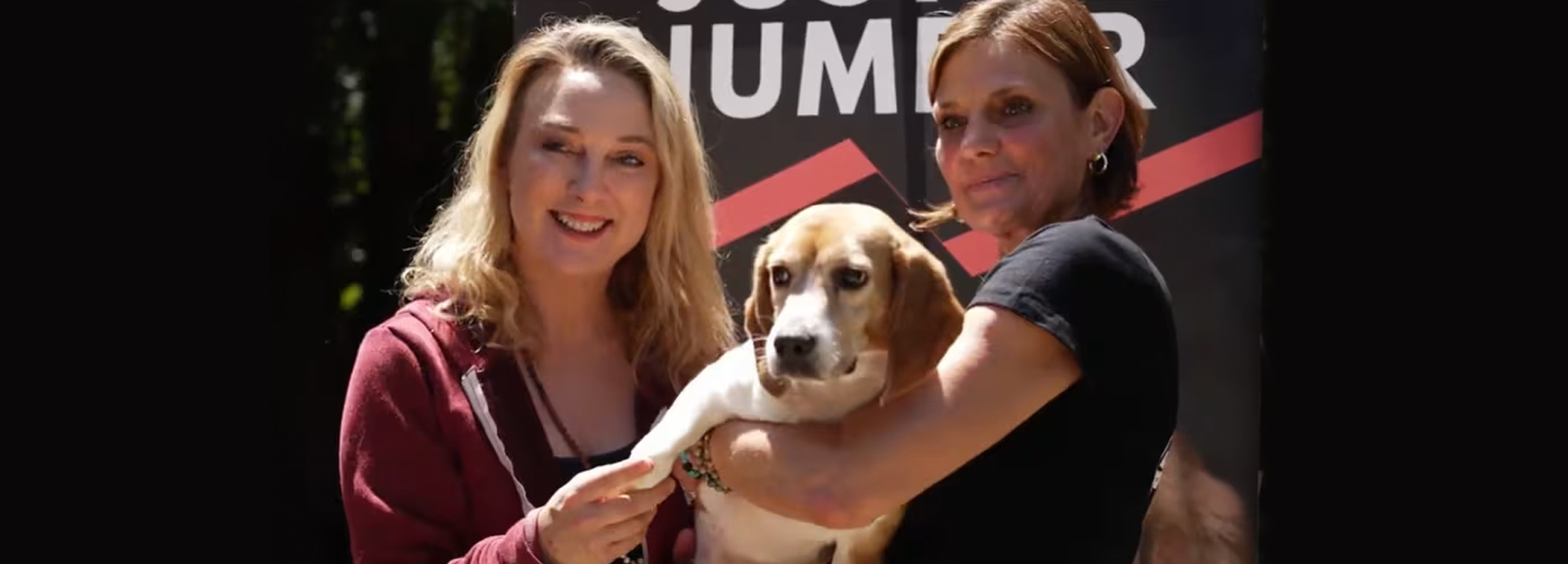ORLANDO, Fla. – A national group that rescues and finds homes for animals from research facilities is in the process of doing their first-ever rescue in Florida.
The Beagle Freedom Project is working to take over the care of a group of beagles and hound mixes from a facility that used them for toxicity testing. The facility itself is not in Florida, but the animals will be brought here.
“At the moment it’s close to 20 and it might go up,” said Shannon Keith, president and founder of the group.
“There’s mostly beagles and a few beagle mixes, like hound mixes,” Keith said. “I should say they’re a little bit bigger than beagles. And so I’m not sure if we’re bringing over just beagles or some of the hound mixes as well, but they’re all available.”
Since 2010 the Beagle Freedom Project has rescued animals, particularly beagles, from research facilities and facilities that breed research animals. Videos of their rescues often go viral, showing the dogs as they are introduced to the world for the first time.
Beagles are the dog breed used most often in testing, particularly for pharmaceuticals, Keith said. On her first rescue effort 13 years ago, a laboratory worker told Keith that beagles were used because they were docile, friendly and “forgiving.”
“She said that they could test on them one day, hurt them, the next day go back to grab them and they were still wagging their tails,” Keith said.
Keith said these dogs are never given names (they have tattooed numbers on their ears to identify them), often never had toys or a blanket or bed, and never known anything to walk on but concrete floors – in short, they don’t know how to be dogs.
“I call these dogs newborns and adult bodies because they’ve never seen the kind of things we’re used to our dogs seeing,” Keith said. “They’re not understanding social cues or how to be a dog. So one of the things we say is you have to have another dog in the home who’s going to teach this dog how to be a dog. So the dog at home will teach the dog you know, proper etiquette, how to potty outside and how to play with a toy. How to respond to our human intonations.”
BFP is currently accepting foster applications for the upcoming rescue. Foster parents are important when the dogs are first released, Keith said, because these dogs need a period of adjustment, and the group needs time to assess the dogs medically.
Once the group deems the dogs ready, they could go to permanent homes with adopters. And some fosters may become what Keith called “foster failures,” where the dogs find a permanent home with their foster parents.
But Keith said the more people who are approved to be foster parents, the better the chance they can free more dogs. They are also looking for homes for cats who have been in research facilities.
“It’s always harder for us to find homes, even just foster homes, for cats,” Keith said. “And they’re wonderful. Let me just tell you right now that I’ve met them all personally, and these cats despite what they’ve been through are so sweet. They are so loving and just desperate for attention. There’s a lot to choose from.”
Keith said Beagle Freedom Project is hoping to conduct the rescue in January. Right now they are looking for foster parents in Florida and adopters. You can submit an application HERE.
BFP is also looking for volunteers. They need volunteers to help transport pets, volunteers to help with paperwork and other clerical issues, and photographers and videographers to volunteer their services during the release.
Also, and most crucially, they need medical helpers.
“We also are probably going to need a lot of very, I would say nonprofit-friendly veterinary services, you know, so that’s the most expensive part for us is veterinary care. So, you know, any vets or registered vet technicians who want to help us that would be amazing,” Keith said.
You can sign up to volunteer HERE.
Can’t volunteer or foster? These dogs will need stuff! The Beagle Freedom Project has an Amazon wish list where you can send them food, toys, blankets and more.
You can also donate money on the Beagle Freedom Project website.
Keith said there is one more thing you can do – buy cruelty-free products where ever you can. BFP has a free “Cruelty-Cutter” app that you can download to your phone to help you find products that are not tested on animals.
“When you go shopping, all you have to do is scan the barcode of an item it will instantly tell you if that product is cruelty-free or not,” Keith said.
“Our ultimate mission is to end animal testing. So these are the steps that we are taking,” she added.
Original Source: ClickOrlando

